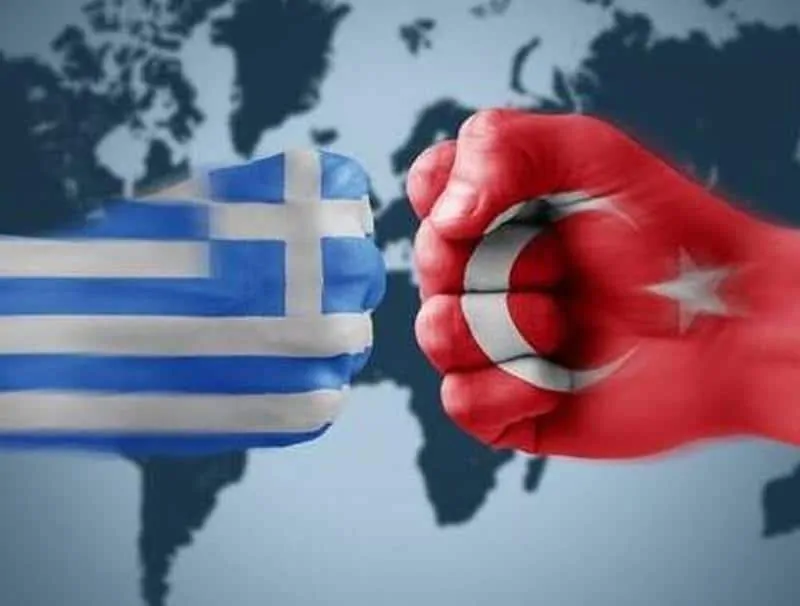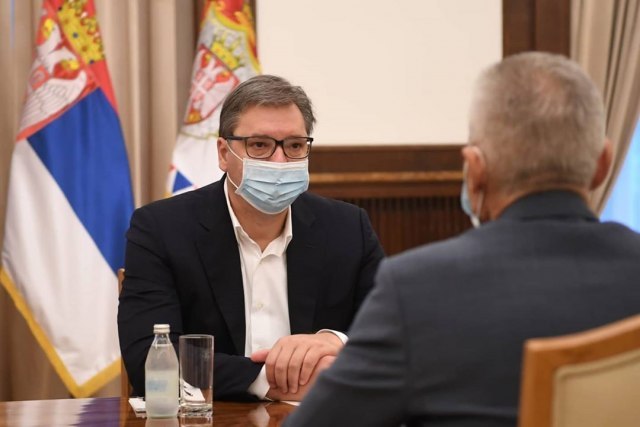For all its bungling and missteps, the Trump Administration’s decision to pay attention to the Kosovo-Serbia dispute is a step in the right direction.
Transatlantic relations, on fragile footing for the better part of the last three and a half years, have been fracturing further across a region that has in the recent past been a rare area of policy consensus. The Western Balkans, always a difficult portfolio, had seen a rare breakthrough agreement in 2018, when Greece and North Macedonia signed the Prespa Agreement, putting an end to a contentious dispute that had lasted for decades. Behind the scenes, Washington and Brussels had been instrumental in brokering the deal, paving the way for North Macedonia to resume its journey to full euroatlantic integration.
There was hope that the Serbia-Kosovo dispute, an even thornier issue, might see a similar breakthrough. Serbia’s President Aleksandar Vucic and Kosovo’s President Hashim Thaçi had been promising one for years, dropping hints that an agreement was within reach. Such hopes were dashed late last month. First, the government of Kosovo collapsed during the coronavirus pandemic. Kosovo’s former Prime Minister Albin Kurti, a darling of Berlin and a critic of the ongoing discussions, subsequently alleged that Richard Grenell, Trump’s top official for Kosovo-Serbia talks, had engineered his ouster. In June, Thaçi was indicted for war crimes as he travelled to meet Vucic in Washington at a summit put together by Grenell. His backers allege that the charges—and their timing—were politically motivated to scuttle the talks.
In early July, the EU resumed the Belgrade-Pristina Dialogue for the first time since 2018. Unsurprisingly, however, the only outcome was more meetings—another round of which is taking place today. If the past is any indication, these talks are going nowhere. The stench of stale thinking permeates the corridors in Brussels. The European promise of speeding Serbia’s accession to the EU, its main “carrot” for inducing Serbia to compromise, is barely credible any longer. The EU, meanwhile, has not delivered on its promise of visa liberalization for Kosovo despite its meeting the relevant criteria two years ago. That “carrot” is so rotten that waving it in front of Kosovo’s face is borderline insulting.
This mental sclerosis is compounded by some truly bizarre personnel choices. At least from Kosovo’s perspective, Europe doesn’t just look incompetent; it looks malicious. Its two top officials for Kosovo are from Spain and Slovakia, two states that still do not recognize Kosovo as independent. EU foreign policy chief Josep Borell’s appointment of Miroslav Lajcak, the former Slovak Minister of Foreign Affairs, was met with skepticism in Kosovo, as well as in Bosnia where he served as High Representative over ten years ago. Lajcak lobbied hard within the EU to be in charge of the entire Western Balkans and “requested a much broader portfolio than just the Kosovo-Serbia negotiations, despite knowing very well that this in itself is a full-time job.” In practice, this means that he managed to connect the Serbia-Kosovo dispute to Bosnia.
This may appear to be only of symbolic consequence, but symbolism matters in these parts. The much-criticized idea of land swaps, rumored to be the “secret sauce” that could get both Belgrade and Pristina to come to an agreement, originated within the office of Borrell’s predecessor Federica Mogherini. Critics correctly point out that this idea has the potential to negatively impact Bosnia, as well as North Macedonia with its large ethnic Albanian minority. By appointing Lajcak as a pan-Balkan hand, all these issues become linked. Allegations that the Trump Administration has taken up Mogherini’s idea of land swaps are indeed worrisome, as we believe that these ideas could be hard to contain. But the silver lining is that there is a clear division of responsibility within Washington: Grenell is exclusively in charge of Kosovo-Serbia talks while Deputy Assistant Secretary and State Department’s Special Envoy Matthew Palmer is in charge of the rest of the region. Tackling issues in the region one-by-one and on clear terms is the only way to make progress. And if Kosovo and Serbia want to make a bilateral agreement in accordance with the Helsinki Final Act, the issue needs to be carefully compartmentalized lest it wreak havoc more broadly.
Beyond the fumbles in staffing, the EU has shown that it has no broader strategy for confronting Russia in the region. Russia’s goals are simple: Moscow wants to maintain its regional leverage by acting as both spoiler and final arbiter to any solution. The latest manifestation of Russian interference is happening in Serbia, where Russian far-right groups, along with Russian intelligence, are said to have instigated violent riots during anti-lockdown protests. As the riots died down, in the most recent meeting at the Russian National Security Council, Moscow labeled the Kosovo-Serbia dispute as a top priority.
Russia was one of the most outspoken critics of the NATO intervention in 1999, which has made it popular among Serbs today. Russia routinely uses the 1999 bombing of Yugoslavia as legal precedent for its interventions in Ukraine and its annexation of Crimea. As a permanent UN Security Council member with veto power, Russia can protect Serbia by blocking votes to recognize Kosovo’s sovereignty. During Russian Foreign Minister Sergei Lavrov’s recent visit to Serbia, he and Russia’s closest Serb ally, then Minister of Foreign Affairs Ivica Dacic, wrote a joint letter emphasizing that compromise is only possible if the 1244 UN Security Council Resolution is respected. While the letter stated that “Moscow will agree only with a settlement that Belgrade will accept,” Minister Lavrov firmly stated that Russia’s approval would be required for any solution reached in peace talks. Following recent elections, the Serbian government is now in formation talks, and Moscow is likely lobbying for its closest allies to have prominent roles within it.
For reasons that aren’t entirely clear, the Trump Administration has taken a keen interest in Kosovo. Some suspect the president simply hopes to make a deal; others that he wanted to beat Angel Merkel on her own turf. The good news for Kosovo is that it is again a foreign policy topic the American Presidential campaign. Former Vice President Biden has come out with a strongly worded statement all but guaranteeing that the United States will remain involved no matter who wins in November.
Whatever one thinks of Trump’s foreign policy—and we have many, many reservations—his administration’s decision to pay attention to the Kosovo-Serbia dispute is exactly what the experts have been advocating for years. While the EU’s track record in the region is somewhere between abysmal and unproductive, the United States has maintained its credibility throughout the last thirty years, and has many cards to play. The main impediment to regional progress, ironically, is not the Balkans’ sticky politics but Washington’s tensions with Berlin. And those are likely to outlast Trump’s term. Trump’s abusive attitude towards allies has won him few admirers in Europe, but it’s issues such as the use of Chinese 5G technology and the Nordstream 2 gas pipeline that have cast a pall over U.S.-German relations. None of these magically disappear if Biden is elected in November.
A Biden Administration may be tempted to try to rebuild bridges with Brussels and Berlin by simply backing the existing pointless dialogue, a process that relies on promises of eventual EU accession as its main motive force. This would be a grave mistake. Let’s not beat around the bush: No one believes that countries in the Western Balkans will enter the EU any time soon. But the issue of Kosovo’s recognition cannot wait. If Kosovo does not get a UN seat in the next few years, the pressure to unite with Albania might become unbearable for Kosovo’s political elites. That would also mean redrawing of the borders that would particularly hurt American standing in the region. Taking land swaps “off the table” in no way means that borders will not be redrawn anyway. Should that happen, the Europeans will likely wriggle their hands and claim that Kosovo is a massive failure of multiple American administrations.
Differences between the U.S. and key European states have been growing since the Cold war ended, but the most recent Kosovo dispute shows that the transatlantic partnership has reached a turning point. European inability to solve the crisis in the Balkans in the 90s resulted in the bloodiest conflict Europe had seen since the World War II, which ended only when America took the lead. No matter who wins in November, the U.S. should not leave the region to the Europeans. It’s too important for that.
Published on: July 23, 2020
Reuf Bajrovic co-chairs the US-Europe Alliance. Ivana Stradner is a Jeane Kirkpatrick Fellow at the American Enterprise Institute.










